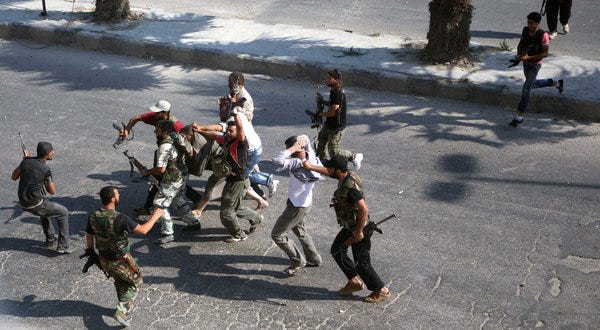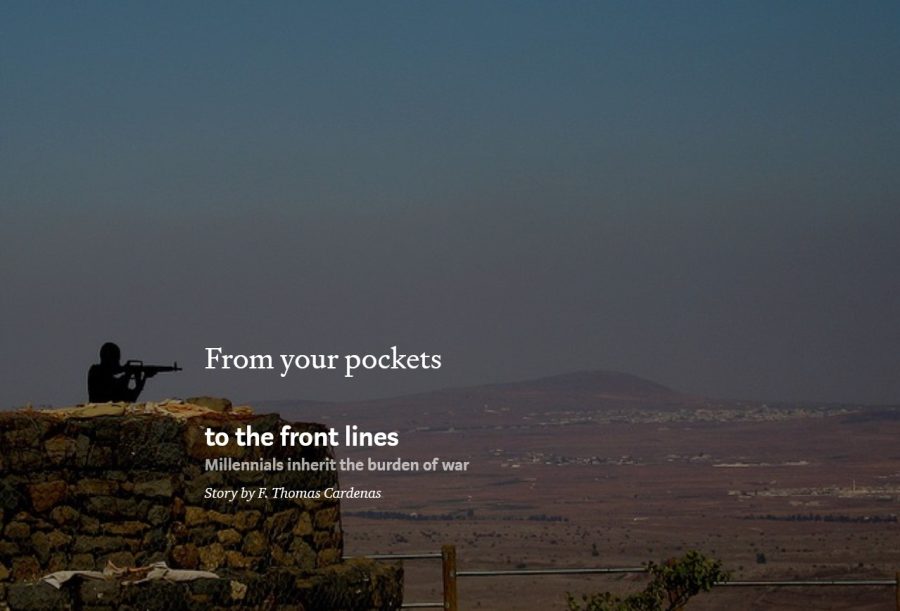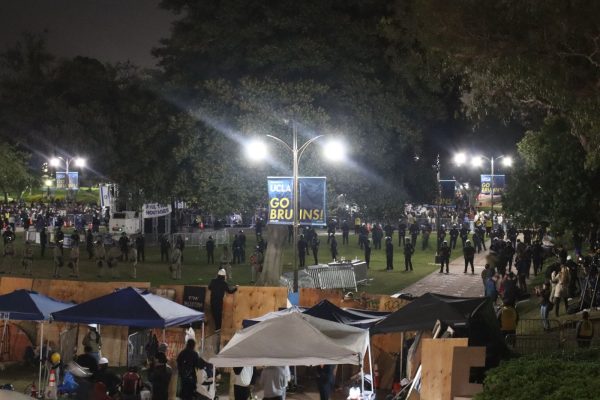From your pockets to the front lines
Millennials inherit the burden of war

You’ve seen those odd numbers on your paycheck; the ones that mean you actually get less than you made. The ones that prevent you from that amazing weekend, new phone, awesome date night.
They are taxes. Everyone has to pay them.
Those taxes, seemingly thieved from your paper lifeline, will now be going to rebel fighters in a land ravaged by religious ideology and armed militias.
This past Thursday the United States Congress voted positively to arm and train “moderate” Syrian rebels. That means your money is going to be sent overseas by people you may or may not have decided it was worth your time to vote for.
It was support for rebels this time. Next time it could be a draft sending your pampered American fingers off to pull triggers instead of double tap this article. You are one bad political decision away from joining those fighters you just paid to assist.
These types of decisions are the political inheritance for young people just now entering adulthood. We are a generation who grew into consciousness amid 13 plus years of outright U.S. conflict and escalating uncertainties around the world.

By voting to once again arm militant factions of Islam the U.S. Congress has assured a well armed enemy in near future conflicts.
The Islamic State of Iraq and Syria, current militant religious adversary of Western forces in the Middle East, owe at least a portion of their success to the U.S. military equipment they have been seen employing around Iraq. It is naive of U.S. lawmakers to think that supplying more war materials to sectarian fighters will do anything but further devastate the region.
When facing these kinds of stark realities, even for someone who wishes to change them, it can be a bit difficult to decipher what role an individual can actually play.
First, learn.
Since 1980 California has built 22 prisons and only one university.
The 2015 US military budget is $756.4 billion. That is about five times more than any other country in the world. We spend like that every year.
The U.S. government is one of the biggest arms dealers in the world (second only to Russia). We sell everything from old fighter jets to missiles, guns, ammo, and armored vehicles.
All those prisons, weapons, and wars are funded by the taxes Americans pay every year. Money comes out of your check and goes into Congress approved plans like these.
By voting for members in Congress, at both the state and national level, we endow our representatives with the power to make choices on our behalf. Some people have proven track records of supplying arms and support to loosely monitored rebel groups around the world, enter Senator John McCain (R-AZ), but others are not always as easy to decipher.
Both California State Senators Feinstein and Boxer, though past opponents of the war in Iraq, approved the joint resolution to arm “moderate” Syrian rebels.
The current conflicts in the Middle East have been engrained social issues for generations. Like those fighting the battles, we who supply the weapons must also remember our historical contributions to the bloodshed.
The U.S. in particular has a decidedly grim history of creating many enemies where before there were few (think Mexican Drug War or Argentina, Nicaragua, El Salvador or just about any Middle Eastern country).
Then, once there is a generation of dissatisfied locals, we denounce their resistance and declare “military actions” against them … because declaring outright war without Congress’ approval would be a total violation of the no-longer observed American Constitution.

Never once during the “War in Iraq” was War actually declared. That would have taken an act of Congress to approve and appropriate funds for, the latter they did anyway.
It is also interesting that the U.S. actually supported Saddam Hussein in the 1980s, even when we knew he was using the very same chemical weapons we used as justification for the Gulf War in the early 90’s. The Gulf War is also a misnomer, in that like the Iraq and Afghanistan Wars, it was a military action, not technically a Congress approved War.
The U.S. also deplored the use of similar chemical weapons by the Syrian government leading up to our current situation. We are now backing rebels against that government. U.S. allies have been shown to supply American made arms and financing to the rebel groups as well.
Let us suppose, for just a bit, that flooding volatile regions with deadly arms and munitions may not be the best idea.
Perhaps, if we had not funded the Libyan rebels, previous Syrian rebels, Iraqi resistance fighters, secretly drone bombed Pakistan, Yemen, and Somalia, we may not have such a wide array of militant opponents in the Middle East.
During the Iraq War period the U.S. flooded the region with high-powered assault rifles, heavily armored vehicles, surface-to-air missiles, anti-tank munitions, and then trained local militias how to use them.
Now, with the subsequent instability of U.S. withdrawal, many of those same militias have joined ISIS and are now tearing around Iraq in U.S.-made, IED resistant, armored vehicles with all the above mentioned equipment.
US allies like Saudi Arabia, Qatar, and Kuwait are also selling the above mentioned arms and equipment to militias the United States does not support in Syria.
The fact is that many of these weapons, whether from sympathetic fighters, captured or deserted Iraqi army bases, or U.S. allies like Saudi Arabia and Qatar, are in the hands of extremists and used frequently on civilians.
We have left a legacy of poorly guarded war materials behind us.
Then, think.
So why then, is this arming of the rebels so important to young adults?
As U.S. government officials have been proven to perpetrate lies to incite military action (President Bush and Iraq to President Polk and the Mexican-American War) we can only logically proceed with utmost critical analysis of governmental decisions and policies.
Essentially what is happening in the Middle East is a severely factional civil war. Civil wars are never easy or gentle, but they are internal matters of state, only matters of national security for other states when our economic interests are threatened. The U.S. has traditionally intervened as a way to protect profit margins, not people.
If the U.S. invested as much money into developing renewable alternatives to fossil fuel and plastics as we do into military funding and foreign aide, we might not have to fund rebels to keep our pipelines safe, or topple democratically elected governments to shield corporate investment.
If we are to break away from the dominant mode of governance through deception, subversion, and incited violence, we must stop funding the war machine. That means getting involved in government. It means voting for representatives who will vote in line with your personal philosophies (which will undoubtedly take a bit of research on your part).
As someone inundated with foreign press, I can say with certainty, the world sees precisely the reason for our meddling, and they are less than amused. If we are to change our inherited path, we must start making wise political decisions now.
Header photo credit: theglobalpanorama via Compfight
Frank Thomas Cardenas is a freelance journalist currently working on an oral history project in Nicaragua. A 2012 Humboldt State University journalism alum, he began his academic career at Mt. San Antonio College and graduated in 2010 with a degree in journalism and mass communication. He examines his dignified rage and explores feminist consciousness in between episodes of Adventure Time.
This story is a part of a special alumni series. Students who have graduated or transferred from Mt. San Antonio’s journalism program are featured weekly.
Substance is a publication of the Mt. San Antonio College Journalism Program. The program recently moved its newsroom over to Medium as part of a one-year experiment. Read about it here: https://medium.com/substance/the-experiment-be947b2ba13e











